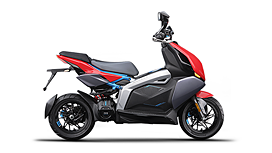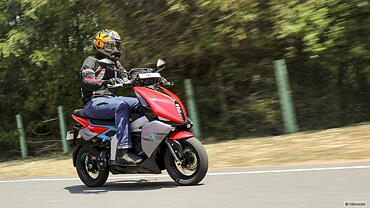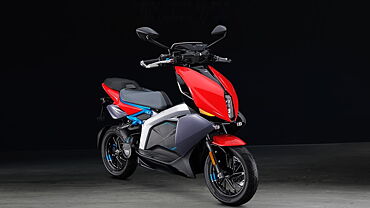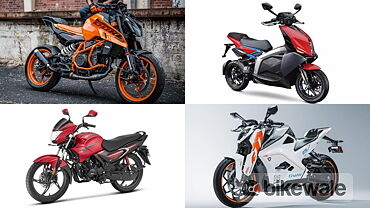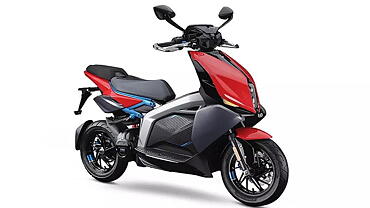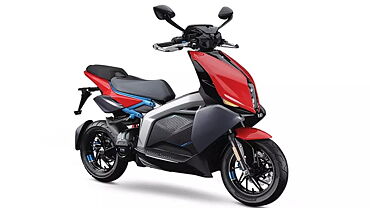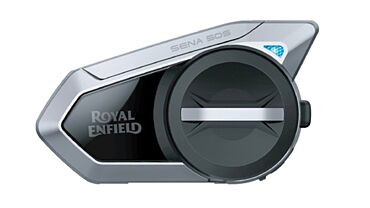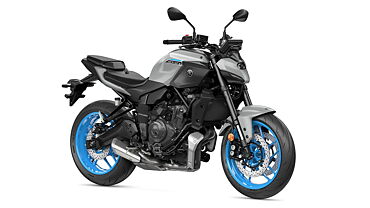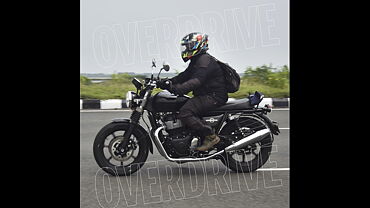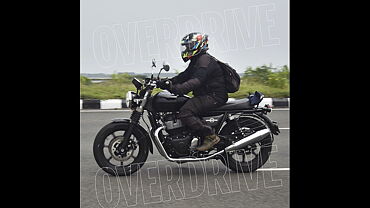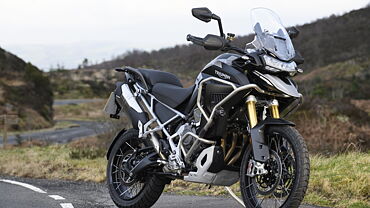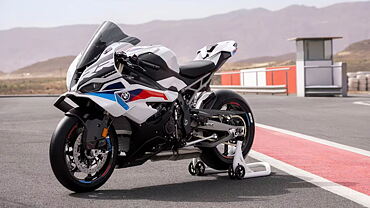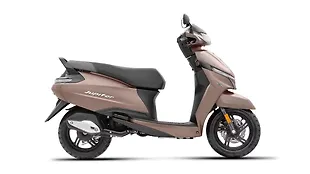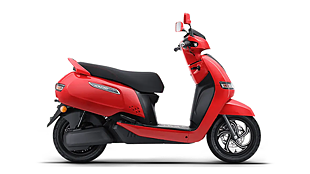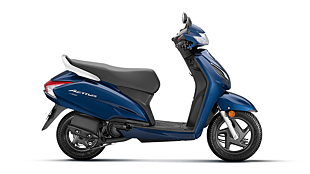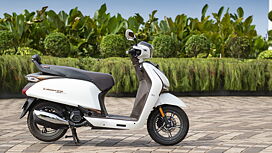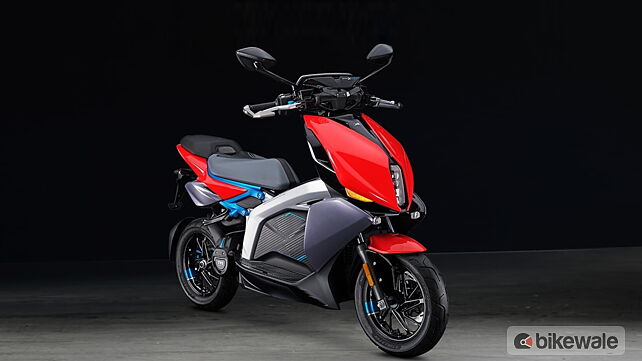
I know what you are thinking: Who in the right mind will pay Rs 2.5 lakh for a scooter in India? And it’s not even your ICE-powered, 250cc, maxi or sporty scooter with over 30bhp on tap. It is an electric.
Sure, electric scooters are gaining flavour among Indian two-wheeler users. But it is still a drizzle rather than an outright downpour of buyers queueing up for e-scooters.
Plus, when you factor in India's most popular electric scooter, the OlaS1, and its specs, you wonder if the X is the game-changer TVS is making it to be.
X marks the spot
The TVS X is a brilliant-looking scooter. It is obviously the Creon concept in production guise; something the Indian two-wheeler maker had showcased in the pre-COVID Auto Expo days back in 2018. So, you can imagine what a brilliant job the designers had done then for the X to look ravishing even today.
The real story, though, is under the skin; under those chiselled, layered and radically styled plastic panels.

The X is more like a motorcycle than a scooter or an underbone/step-thru when it comes to its chassis. TVS calls it the Xleton platform. It uses a twin-spar aluminium frame as the backbone. A light subframe is bolted at the rear, and a cradle-type frame that houses the battery and the powertrain is bolted under the twin spar to complete the chassis.
This is a scalable platform. With the same twin-spar frame, TVS can bolt on different sub and cradle frames for different body styles and powertrain options. Given the Xleton is already over-engineered for what it currently offers, the upgrades in terms of body style and powertrain options should not push up the pricing significantly from where it stands today, in our opinion.
Run-of-the-mill
Barring the chassis, other cycle parts of the X are oddly very run-of-the-mill. It gets non-adjustable, conventional-way-up telescopic forks upfront and an offset monoshock at the rear. The wheels are 12-inchers shod with 100- and 110-section tyres front and rear, respectively. And braking is handled by a 220mm disc at the front and a 195mm rear disc. The X does get ABS, the only electric scooter in its class to do so.

There's not much to go gaga over the powertrain specs either. Yes, it has the most powerful motor and the biggest battery pack in its class. As a result, it's claimed 4.5 seconds 0-60kmph time isn't just believable, but also quite quick. However, a top speed of 105kmph and a 140km range, though impressive, aren't groundbreaking.

Elephant in the room
What is groundbreaking - or shattering - is its price. At Rs 2.5 lakh, ex-showroom, it is a lakh more than both the ICE-powered sporty Yamaha Aerox and the fast-selling Ola S1 Pro. The latter is slower than the X, for sure. And the Ola can’t hold a candle to the TVS come design, road presence or the drool co-efficient. But, the S1 Pro offers a higher range. It has a higher top speed. And it offers more storage space and practicality. It is also lighter.

What's more, barring the simpler chassis design, the Ola matches the X in terms of cycle parts. Be it the suspension, the wheels or the brakes. At least on paper. Maybe, the X will ride and handle better. Maybe, it will be the first electric scooter for us to get our knee down on. After all, TVS is all praises about the X’s agility, handling and rider connection owing to the much higher chassis stiffness compared to its competition and sharp steering geometry.

But can this justify a premium of over a lakh for the average Indian two-wheeler-buying populace? We are not so sure.
A pipe dream?
On the face of it, the TVS X looks like a technology showcase.
A halo product that is meant to draw more scooter buyers into TVS showrooms, with the hope that the X's dramatic presence will have a positive rub-off on the sales of its regular scooters like the TVS Ntorq and possibly the iQube.

But, of course, building and homologating a well-engineered, expensive production scooter just as a brand-building or marketing exercise doesn’t make sense. Not when TVS is looking at producing 3,000 units of the scooter a month. Now, it would take a miracle for TVS to utilise this capacity domestically. And therefore, the X will also be sold in markets like Latin America and Southeast Asia. We expect to see newer versions of the X for these markets too; ones with higher performance and longer range but without a significant jump in its price to appeal to a wider audience.
The BMW connection
Finally, TVS is vehement that the X is a TVS-only platform. And that BMW has nothing to do with it. The two have already revealed their collaborative effort in the electric space via the BMW CE 02. However, BMW says it will develop bigger electric motorcycles on its own, but it is open to developing a smaller e-motorcycle with TVS.

And here’s the kicker - a closer look at the Xleton chassis confirms it has a motorcycle hiding in there. And we are certain the platform will have a bigger role to play in BMW’s smaller e-motorcycle fortunes than either TVS or BMW are letting on.

